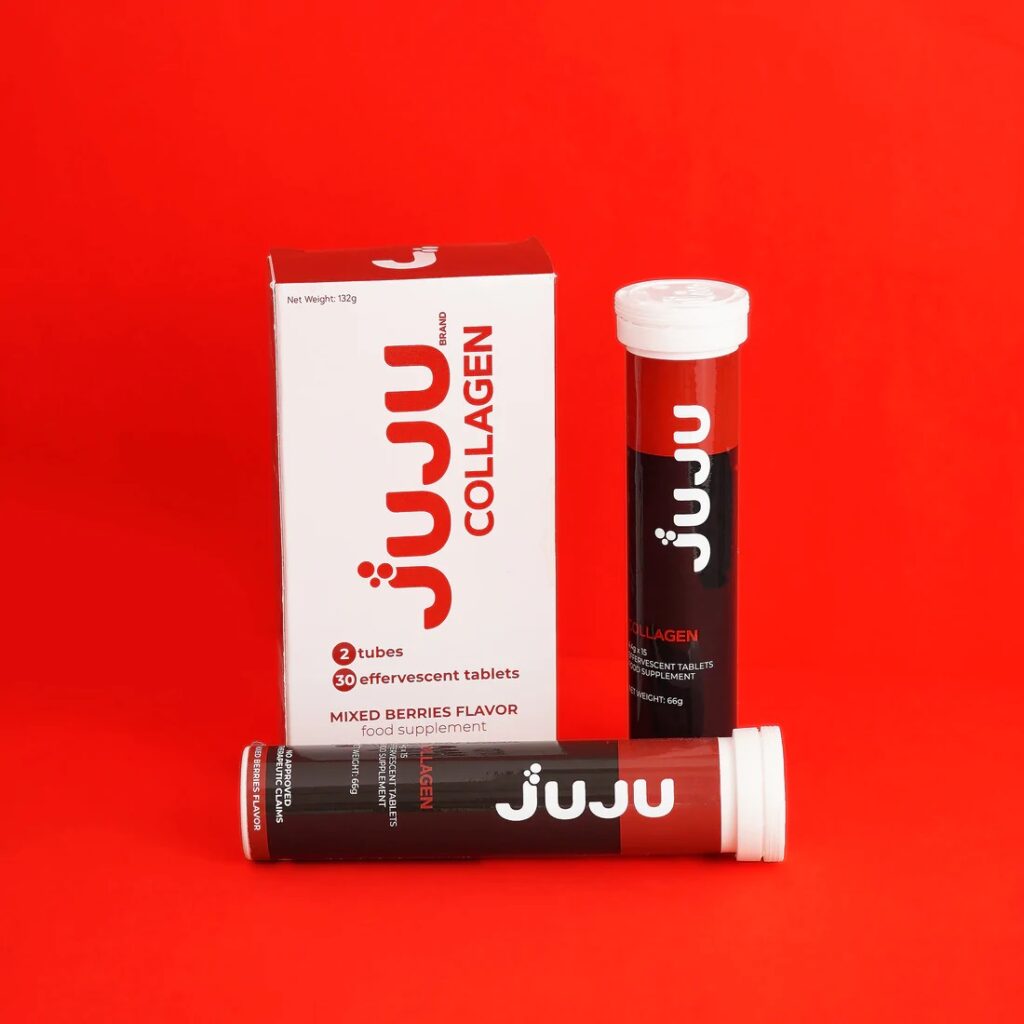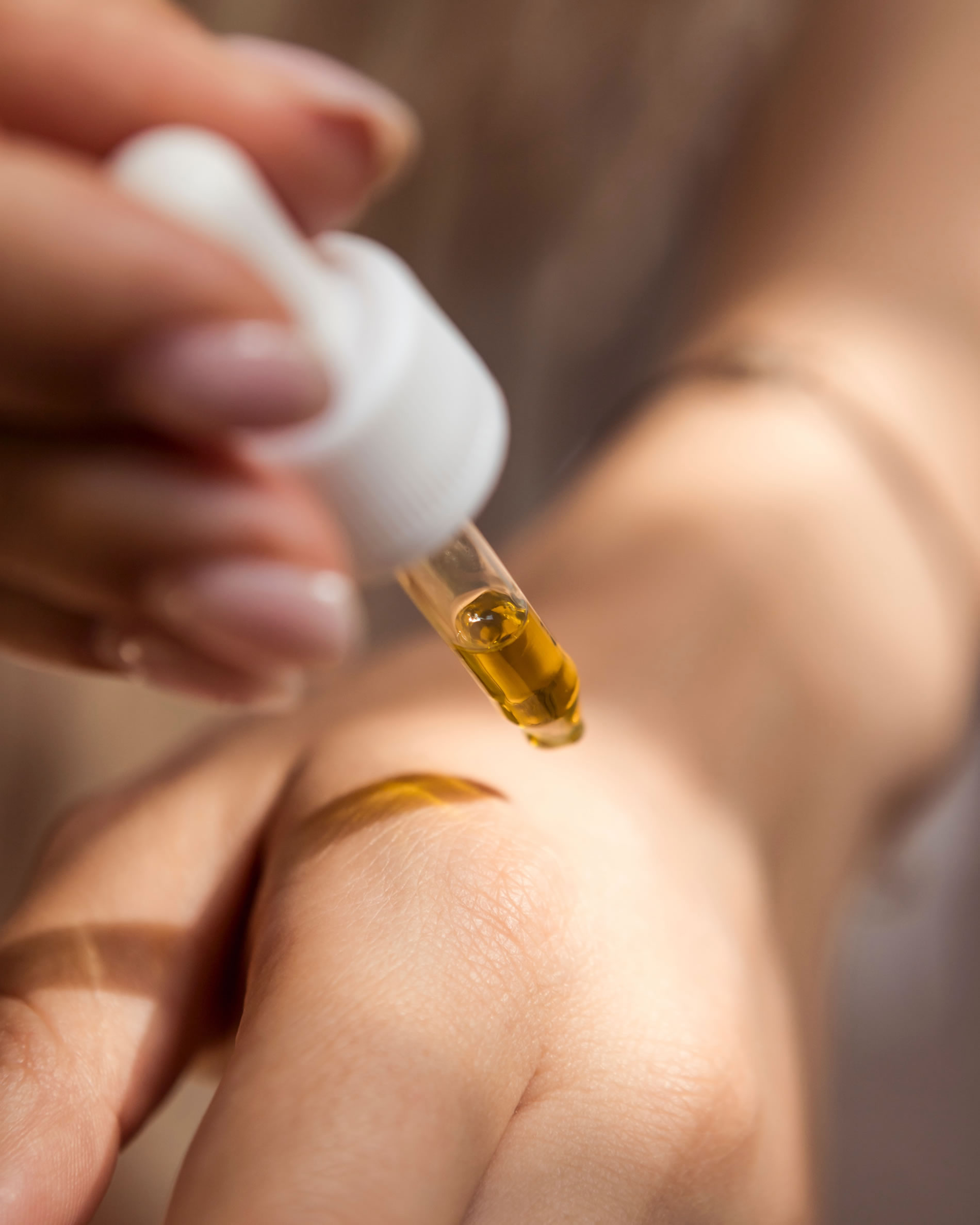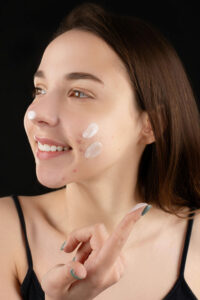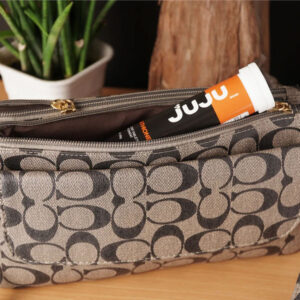Understanding your skin type is essential when it comes to choosing the right skincare products and developing an effective skincare routine. However, with so many different skin types and skin concerns, it can be challenging to know exactly what your skin needs.
That’s why it’s important to learn how to know your skin type to ensure that you are giving your skin the best care possible. By determining your skin type, you can choose skincare products and routines that are tailored to your unique needs and concerns, and avoid using products that may cause irritation or other skin problems.
In this article, we will explore the different skin types, the characteristics of each skin type, and how you can identify your skin type to create a personalized skincare routine that will help you achieve healthy, glowing skin.
/ IN THIS ARticle
Importance of Knowing your Skin Type
Any dermatologist will tell you how important it is to ensure that any skin care products are chosen with your skin type in mind. If the product isn’t right for your skin type it won’t be as effective and could aggravate existing conditions, or even cause new ones. This is why whether purchasing a moisturiser, cleanser or anything else for your skin, it’s essential you know your skin type.
The type of skin you have depends on the amount of water and oil in your skin. If these are out of balance your skin will suffer. So for example, if your skin has too much oil you may be more prone to acne outbreaks, and your skin will appear shiny. Skin care products designed for oily skin will be oil-free, and may have ingredients designed to help rebalance the level of oil in your skin.
Another problem that many people suffer from is dry skin, which is caused by a lack of water in the skin. As well as feeling itchy and tight, dry skin looks visibly flaky and can even cause fine lines. Products designed with dry skin in mind will usually be water-based to add much needed moisture to the skin.
It’s also possible to have combination skin. This means that some areas of the face will be oily while others will be dry. People with this skin type may want to use products designed specifically for combination skin, or use different products on the different areas of their face.
There is normal skin; people with this skin type have the right balance of oil and water.
Some people can tell their skin type simply from looking in the mirror. Others might be able to feel whether they have oily, dry or normal skin or be happy taking an online test. If, however, you don’t feel confident about what type of skin you have, it’s best to speak to someone who specializes in dermatology to ensure you only use the products best suited to you.
How Skin Type Affects your Skincare Routine
Your skin type plays a crucial role in determining your skincare routine. Different skin types require specific products and techniques to achieve the best results. Generally, there are four basic skin types: normal, oily, dry, and combination.
- Normal skin has balanced oil production, is not overly sensitive, and has few imperfections. A skincare routine for normal skin type should focus on maintaining the skin’s balance and preventing damage. A gentle cleanser, a hydrating moisturizer, and a daily sunscreen are essential.
- Oily skin tends to produce excessive sebum and has enlarged pores, making it prone to acne and breakouts. A skincare routine for oily skin type should aim to control oil production and prevent breakouts. Products containing salicylic acid or benzoyl peroxide can help to unclog pores and reduce inflammation. A non-comedogenic moisturizer and an oil-free sunscreen are also recommended.
- Dry skin lacks moisture and may appear flaky or dull. A skincare routine for dry skin type should aim to hydrate and nourish the skin. Look for products that contain ingredients such as hyaluronic acid, glycerin, and ceramides. A rich moisturizer and a daily sunscreen are important for maintaining healthy skin.
- Combination skin has both oily and dry areas. The T-zone, which includes the forehead, nose, and chin, tends to be oily, while the cheeks are dry. A skincare routine for combination skin type should focus on balancing oil production and hydration. Use a gentle cleanser, a lightweight moisturizer for the cheeks, and a mattifying moisturizer for the T-zone. A daily sunscreen is also essential to protect the skin from damage.
Understanding your skin type is crucial in creating an effective skincare routine. By using the appropriate products and techniques, you can achieve healthy, glowing skin. It is also important to note that your skin type may change over time due to various factors such as aging, hormonal changes, and environmental factors, so it’s essential to reassess your skincare routine regularly.
Basic Skin Types
Normal Skin
Normal skin is characterized by a well-balanced complexion that is neither too oily nor too dry, and has few imperfections. It is generally considered the easiest skin type to care for. An ideal skincare routine for normal skin should focus on maintaining its balance and preventing damage.
This includes using a gentle cleanser to remove dirt and impurities, a hydrating moisturizer to keep the skin nourished, and a daily sunscreen to protect the skin from the harmful effects of UV rays.
Normal skin type may also benefit from occasional exfoliation to remove dead skin cells and promote healthy cell turnover. Additionally, incorporating serums or treatments that target specific concerns such as fine lines or dark spots may further enhance the overall health and appearance of the skin.
Dry Skin
Dry skin is characterized by a lack of moisture, which can result in a dull, flaky appearance. It may also feel tight or itchy. Causes of dry skin include genetics, aging, environmental factors such as cold weather or low humidity, and the use of harsh soaps or skincare products.
An ideal skincare routine for dry skin should focus on hydrating and nourishing the skin. This includes using a gentle, moisturizing cleanser to avoid stripping the skin of its natural oils. A rich moisturizer containing ingredients such as hyaluronic acid, glycerin, and ceramides should be used to help lock in moisture and repair the skin barrier.
Additional moisture can be achieved by using a face oil or moisturizing serum. In order to remove dulling dead skin and encourage healthy new skin growth, gentle exfoliation on occasion is recommended. Last but not least, preventing further skin dryness from UV damage by using a sunscreen with an SPF of at least 30 every day.
Oily Skin
Oily skin is characterized by excessive sebum production, enlarged pores, and a tendency to develop acne and breakouts. Causes of oily skin include genetics, hormonal changes, and environmental factors such as humidity or using heavy skincare products.
An ideal skincare routine for oily skin should focus on controlling oil production and preventing breakouts. This includes using a salicylic acid or benzoyl peroxide cleanser to help unclog pores and reduce acne-causing bacteria.
A non-comedogenic, oil-free moisturizer should be used to hydrate the skin without clogging pores. It is also important to use a daily sunscreen with at least SPF 30 to protect the skin from UV damage.
Products with niacinamide or tea tree oil, for example, can help regulate oil production and reduce inflammation even further. In order to prevent the skin from overproducing oil, it is best to avoid over-exfoliating or using harsh skincare products.
Combination Skin
Combined skin is characterized by having both oily and dry areas on the face, with the T-zone (forehead, nose, and chin) typically being oily while the cheeks and other areas are dry. Causes of combination skin include genetics, hormonal changes, and the use of certain skincare products.
An ideal skincare routine for combination skin should focus on balancing the skin and addressing both oily and dry areas. This includes using a gentle, pH-balanced cleanser to avoid stripping the skin of its natural oils.
A lightweight, oil-free moisturizer should be used on the oily areas, while a richer moisturizer can be used on the dry areas. Exfoliating once or twice a week can help to remove dead skin cells and prevent clogged pores.
Alpha hydroxy acids and niacinamide are just two examples of skin-balancing chemicals that can be found in a variety of products. Protect your skin from harmful UV rays by applying a sunscreen with an SPF of 30 or higher every day.
Finding the right balance of products for combination skin can take some trial and error, so it is important to pay attention to how the skin responds to different products and adjust accordingly.
Consistency is key in a skincare routine as it allows time for the products to work effectively. Products and ingredients that promote healthy glowing skin include vitamin C, hyaluronic acid, and antioxidants such as green tea and vitamin E. Juju Collagen with Vitamin C and Juju Glutathione are products that contain these ingredients and can help improve the overall health and appearance of the skin.
When choosing skincare products, it’s important to consider your skin type and any specific concerns or sensitivities you may have. Look for products that are formulated for your skin type and free from potential irritants such as fragrance and alcohol.
Patch testing new products can also help to identify any potential reactions before applying to the entire face. It’s also important to remember that skincare is not a one-size-fits-all approach, so it may take some trial and error to find the perfect routine for your skin.
Factors that Affect Skin Type
Winter Weather
Cold winter weather often causes many skin issues, including dry chapped hands and lips. Your skin may become itchy and flaky during our long, cold winter. Lack of moisture in the air—both indoors and outside—also drains moisture from your skin.
What you can do: Moisturize! Moisturize! Moisturize! And hydrate!! Cover up when you’re outside, and make sure to get out of wet clothing quickly. When you bathe, warm water is better for your skin than hot since hot water can further irritate and dry your skin.
It’s in the Air
Dust and pollutants can clog pores and make your skin appear dull. When we seal up our homes against the cold air, this further exacerbates certain skin issues.
What you can do: Smart and consistent skin care is your best defense! Use a gentle cleanser with warm water to remove dirt and oil. Then add a moisturizer that’s right for your skin type. Also, you may want to consider adding a hepa air purifier in your home to remove many airborne irritants.
Food Choices
Comfort foods seem like great ideas during the cold weather, but poor diet choices are not healthy for your body or your skin. Regardless of the temperatures on the thermometers, you need healthy fruits and vegetables that contain antioxidants to fight free radicals that may age your skin.
What you can do: Eat at least 3-4 servings of fruits and vegetables each day. Add nuts and berries to your diet since many are rich in zinc and may help reduce inflammation. You’ll also want to decrease the amount of caffeine, sodium, sweets, and carbohydrates you consume.
Sun Exposure
Snow or none. Gloomy or sunny. Cold or even colder. No matter the weather outside, exposure to harmful UV rays will damage your skin, age you faster than you want, and increase your susceptibility to skin cancer.
What you can do: Always wear a broad spectrum sunscreen of SPF of 30 or higher that protects against UVA and UVB rays every day on all exposed skin. And, remember your lips. Make sure you use a lip balm or lipstick that has SPF.
Shut Eye
Skin looking dull? Acne flare-ups? Dark circles under your eyes? Lack of sleep may be the culprit.
What you can do: Do your skin and your overall health a favor and get adequate sleep each night.
Identifying Your Skin Type: Tests and Methods
- The Bare-Faced Method: This method involves thoroughly cleansing your face and then waiting for 30 minutes without applying any products. After 30 minutes, observe your skin in a well-lit area to determine your skin type. Normal skin will appear smooth and evenly toned, oily skin will have a noticeable shine and visible pores, dry skin will appear flaky and tight, and combination skin will have oily T-zone and dry cheeks.
- The Blotting Paper Test: This test involves using a blotting paper on different areas of the face to determine oil production. Gently press a blotting paper on your forehead, nose, cheeks, and chin. After a few seconds, remove the paper and observe the amount of oil absorbed. If there is little to no oil on the paper, you likely have dry skin. If the paper has visible oil on it, you may have oily skin. If the paper has oil on the T-zone but not on the cheeks, you likely have combination skin.
- The Touch Test: This method involves touching your face to determine its texture. Using clean hands, gently touch your face with your fingertips. If your skin feels smooth and supple, you may have normal or combination skin. If your skin feels rough or bumpy, you may have dry or sensitive skin. If your skin feels greasy, you likely have oily skin.
- Observing your skin’s reaction to products: This method involves testing different skincare products to determine how your skin reacts. Start by patch testing the product on a small area of your skin, such as behind your ear, and wait 24 hours to observe any reactions. If there is no reaction, apply the product to your face and observe how your skin reacts over the next few days. If the product causes dryness, irritation, or breakouts, you may need to switch to a different product or adjust your skincare routine.
Identifying your skin type is important for choosing the right skincare products and developing an effective skincare routine. By using these tests and methods, you can determine your skin type and tailor your skincare routine to meet your specific needs. Remember that your skin type can change over time, so it is important to regularly assess and adjust your skincare routine as needed.
Understanding Skin Concerns and Conditions
There are several skin concerns and conditions that people may experience. Understanding these concerns can help you to develop an effective skincare routine and address any issues you may be experiencing. Here are some common skin concerns and conditions:
- Sensitive skin: Sensitive skin is characterized by easily irritated or inflamed skin. It can be caused by genetics, environmental factors, or the use of certain skincare products. An ideal skincare routine for sensitive skin should focus on gentle, non-irritating products. This includes using a mild, fragrance-free cleanser, avoiding products with harsh ingredients, and using a moisturizer that contains soothing ingredients such as aloe vera or chamomile.
- Acne-prone skin: Acne-prone skin is characterized by frequent breakouts and blemishes. It can be caused by genetics, hormonal changes, stress, or the use of certain skincare or makeup products. An ideal skincare routine for acne-prone skin should focus on gentle, non-comedogenic products. This includes using a gentle cleanser, avoiding products with pore-clogging ingredients, and using a moisturizer that contains acne-fighting ingredients such as salicylic acid or benzoyl peroxide.
- Aging skin: Aging skin is characterized by fine lines, wrinkles, and loss of elasticity. It is caused by a combination of factors including genetics, sun damage, and natural aging processes. An ideal skincare routine for aging skin should focus on protecting and nourishing the skin. This includes using a gentle cleanser, using a daily sunscreen with at least SPF 30, and using a moisturizer that contains anti-aging ingredients such as retinol or vitamin C.
Other common skin concerns and conditions include dry skin, oily skin, hyperpigmentation, and rosacea. It is important to identify your specific skin concern or condition and tailor your skincare routine accordingly. This may involve consulting with a dermatologist or skin care professional to determine the best course of action.
Importance of a Personalized Skin Routine
A personalized skincare routine is important because every individual has unique skin needs and concerns. What works for one person may not work for another. By customizing your skincare routine, you can address your specific skin concerns and achieve optimal results.
This may involve selecting products with specific ingredients tailored to your skin type or concerns, adjusting the frequency of product use based on your skin’s reaction, and avoiding products that may be irritating or damaging to your skin.
Juju Products such as Juju Collagen with Vitamin C and Juju Glutathione can be great additions to a personalized skincare routine. These products are formulated with ingredients that promote healthy, youthful-looking skin, such as collagen, vitamin C, and glutathione.
Collagen is a key component of healthy skin and helps to improve skin elasticity and firmness. Vitamin C is a powerful antioxidant that can help to protect the skin from environmental stressors and improve skin tone and texture. Glutathione is another antioxidant that can help to brighten and even out the skin tone.
Ultimately, the key to a successful personalized skincare routine is understanding your skin type and concerns, and selecting products that address those specific needs. By doing so, you can achieve healthy, glowing skin that looks and feels its best.
A custom routine gives you tailor-made benefits
Whether your skin concerns include hyperpigmentation, breakouts, fine lines, or rosacea, personalized skin care often offers more than most over-the-counter products. You get to know the ingredients in your products without having to do the research on your own. Why? Because you can reach out to your dermatology provider and ask. They are there for you to discuss your formula and routine. And this puts you where you belong—in the driver’s seat.
Not all customized skincare brands are the same. Some provide customized formulas based on your skin type and skin condition. Others, like Curology, pair you with a licensed skin care professional who will develop a treatment plan for and with you.
Your dermatology provider will evaluate your skin and ask questions about your lifestyle, environment, and skincare goals. They’ll curate a program designed for your skin, so you can start your routine right. Because your formula is made for you, it’s not stuffed full of unnecessary ingredients—just the good stuff designed to work for your unique skin.
How to Choose the Right Products
Choosing the right products for your skin type is essential to achieving healthy, glowing skin. The first step is to identify your skin type and any specific concerns you may have. This can be done through various methods, including the bare-faced method, the blotting paper test, and the touch test. Once you have identified your skin type, look for products that are specifically formulated for your skin type.
- When selecting skincare products, pay attention to the ingredients. Look for products that contain ingredients that are known to benefit your skin type, such as hyaluronic acid for dry skin, salicylic acid for acne-prone skin, and retinol for aging skin. Avoid products that contain harsh or irritating ingredients, such as alcohol or fragrances, as these can damage your skin and cause irritation.
- Consider the texture of the products as well. For example, if you have oily skin, you may want to choose a lightweight, oil-free moisturizer that won’t clog your pores. If you have dry skin, you may prefer a richer, more hydrating moisturizer.
It’s also important to pay attention to the order in which you apply your products. Generally, you should start with a cleanser, followed by a toner (if desired), then a serum, moisturizer, and sunscreen during the day. Incorporating a face mask or exfoliating product once or twice a week can also help to improve the appearance of your skin.
Overall, choosing the right products for your skin type requires some trial and error, but by following these tips, you can find the products that work best for you and achieve healthy, radiant skin.
Common Mistakes to Avoid
Taking care of your skin is important, but there are common mistakes that many people make that can actually harm your skin instead of helping it. One of the most common mistakes is over-exfoliating.
While exfoliating can help to remove dead skin cells and improve the appearance of your skin, doing it too often can actually damage your skin’s protective barrier, leading to irritation and inflammation.
Another mistake is using skincare products that are too harsh for your skin type. For example, using products formulated for oily skin when you have dry skin can cause dryness and irritation. Similarly, using products that contain harsh ingredients, such as alcohol or fragrances, can strip your skin of its natural oils and cause irritation.
Another common mistake is neglecting to wear sunscreen. Sun damage is one of the leading causes of skin aging and can also increase your risk of skin cancer. Make sure to use a broad-spectrum sunscreen with an SPF of at least 30 every day, even on cloudy days.
Finally, using too many products or layering them incorrectly can also be a mistake. Overloading your skin with too many products can cause irritation and clog your pores. Make sure to use products in the correct order, starting with the lightest consistency and working your way up to the heaviest.
Overall, avoiding these common skincare mistakes can help to keep your skin healthy, radiant, and free from irritation and inflammation.
Frequently Asked Questions
Yes, your skin type can change over time due to various factors such as hormonal changes, aging, and environmental factors like weather and pollution.
It is recommended to re-evaluate your skin type every few years or when you notice significant changes in your skin. Additionally, it’s important to reassess your skin type when starting a new skincare routine or when experiencing persistent skin concerns.
Different skin types age differently. For instance, dry skin is more prone to fine lines and wrinkles, while oily skin may be more prone to breakouts and acne. However, a consistent and personalized skincare routine can help to slow down the aging process for all skin types.
Yes, there are specific skin concerns associated with each skin type. For instance, dry skin may experience flakiness and dullness, while oily skin may experience excessive oiliness and acne breakouts. Combination skin may experience a combination of these concerns. Sensitive skin is more prone to irritation and redness.
Yes, skin type can impact the effectiveness of certain skincare treatments. For example, oily skin may benefit from ingredients such as salicylic acid or benzoyl peroxide to control acne, while dry skin may benefit from ingredients such as hyaluronic acid or ceramides to improve hydration. It’s important to choose skincare products that are formulated for your specific skin type to maximize their effectiveness.
Conclusion
Knowing your skin type is crucial in determining the right skincare routine and products for your skin. To determine your skin type, there are several methods such as the bare-faced method, blotting paper test, and touch test.
The bare-faced method involves cleansing your face with a gentle cleanser and observing your skin’s natural state after a few hours. The blotting paper test involves pressing a blotting paper onto different areas of your face to determine the amount of oil produced. The touch test involves touching your face with clean hands to determine the level of hydration.
By identifying your skin type, you can choose products that are tailored to your specific skin concerns and needs. Knowing how to know your skin type is the first step in achieving healthy and radiant skin.
- https://www.sknclinics.co.uk/blog/the-importance-of-knowing-your-skin-type
- https://nimaskininstitute.com/5-key-factors-that-affect-your-skin/
- https://curology.com/blog/why-you-should-consider-a-customized-skincare-routine/#:~:text=A%20custom%20routine%20gives%20you,the%20research%20on%20your%20own.
Related Stories

Wanna be part of the…
JUJU VIP CLUB?
GET 10% OFF
Just fill out the form below:









